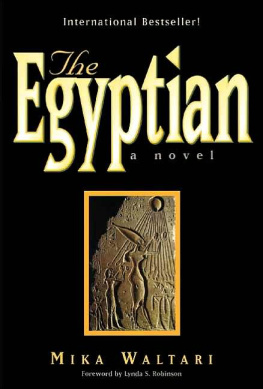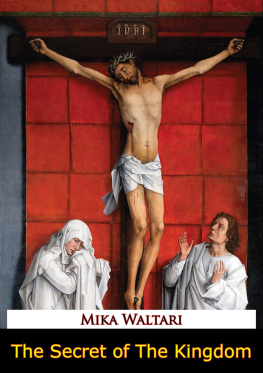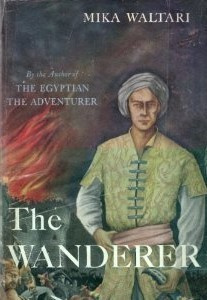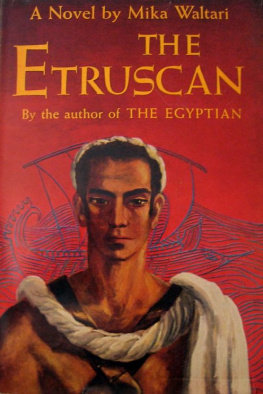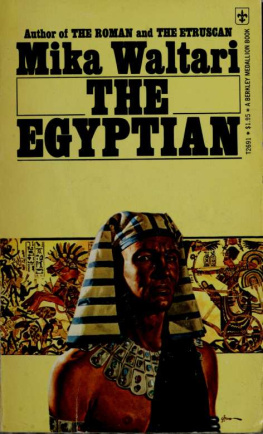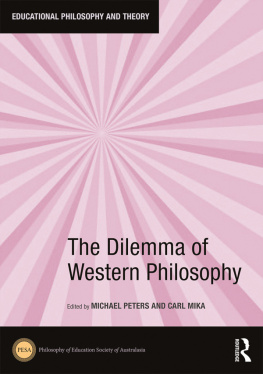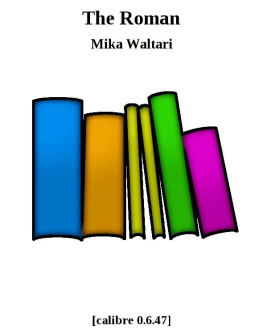Mika Waltari - The Egyptian
Here you can read online Mika Waltari - The Egyptian full text of the book (entire story) in english for free. Download pdf and epub, get meaning, cover and reviews about this ebook. year: 1949, publisher: G. P. Putnams Sons, genre: Art. Description of the work, (preface) as well as reviews are available. Best literature library LitArk.com created for fans of good reading and offers a wide selection of genres:
Romance novel
Science fiction
Adventure
Detective
Science
History
Home and family
Prose
Art
Politics
Computer
Non-fiction
Religion
Business
Children
Humor
Choose a favorite category and find really read worthwhile books. Enjoy immersion in the world of imagination, feel the emotions of the characters or learn something new for yourself, make an fascinating discovery.
- Book:The Egyptian
- Author:
- Publisher:G. P. Putnams Sons
- Genre:
- Year:1949
- Rating:4 / 5
- Favourites:Add to favourites
- Your mark:
- 80
- 1
- 2
- 3
- 4
- 5
The Egyptian: summary, description and annotation
We offer to read an annotation, description, summary or preface (depends on what the author of the book "The Egyptian" wrote himself). If you haven't found the necessary information about the book — write in the comments, we will try to find it.
The Egyptian — read online for free the complete book (whole text) full work
Below is the text of the book, divided by pages. System saving the place of the last page read, allows you to conveniently read the book "The Egyptian" online for free, without having to search again every time where you left off. Put a bookmark, and you can go to the page where you finished reading at any time.
Font size:
Interval:
Bookmark:
by Mika Waltari
Translated by Naomi Walford
Flyleaf:
The Egyptian is the full-bodied recreation of an era hitherto untapped by fiction. As such it is rich with fresh veins of fascinating lore. Entirely authentic, it is written with a literary excellence of which few contemporary historical novels can boast.
The story of The Egyptian is rolled out on a tremendous canvas. Set in Egypt, more than a thousand years before Christ, it encompasses all of the then-known world. It is told by Sinuhe, physician to the Pharaoh, and is the story of his life. Through his eyes are seen innumerable characters, full drawn and covering the whole panorama of the ancient world. Events of war, intrigue, murder, passion, love, and religious strife are revealed as Sinuhe describes his often brilliant, often bitter, life.
There is real grandeur to The Egyptian. It has the broad sweep of truly major fiction, a powerful narrative pace coupled with intense human interest. It is the astonishing triumph of a great creative imagination.
The author, Mika Waltari, is probably the most famous living writer in his native Finland. His book has enjoyed enormous success around the world.
Copyright 1949, by G. P. Putnams Sons
G. P. Putnams Sons, New York.
All rights reserved. This book, or parts thereof, must not be reproduced in any form without permission.
Printed in the United States of America
I, SINUHE, the son of Senmut and of his wife Kipa, write this. I do not write it to the glory of the gods in the land of Kem, for I am weary of gods, nor to the glory of the Pharaohs, for I am weary of their deeds. I write neither from fear nor from any hope of the future but for myself alone. During my life I have seen, known, and lost too much to be the prey of vain dread; and, as for the hope of immortality, I am as weary of that as I am of gods and kings. For my own sake only I write this; and herein I differ from all other writers, past and to come.
I begin this book in the third year of my exile on the shores of the Eastern Sea, whence ships put out for the land of Punt, near the desert, near those hills from which stone was quarried to build the statues of former kings. I write it because wine is bitter to my tongue, because I have lost my pleasure in women, and because neither gardens nor fish pools delight me any more. I have driven away the singers, and the sound of pipes and strings is torment to my ear. Therefore, I write this, I, Sinuhe, who make no use of my wealth, my golden cups, my ebony, ivory, and myrrh.
They have not been taken from me. Slaves still fear my rod; guards bow their heads and stretch out their hands at knee level before me. But bounds have been set to my walking, and no ships can put in through the surf of these shores; never again shall I smell the smell of black earth on a night in spring.
My name was once inscribed in Pharaohs golden book, and I dwelt at his right hand. My words outweighed those of the mighty in the land of Kem; nobles sent me gifts, and chains of gold were hung about my neck. I possessed all that a man can desire, but like a man I desired moretherefore, I am what I am. I was driven from Thebes in the sixth year of the reign of Pharaoh Horemheb, to be beaten to death like a cur if I returnedto be crushed like a frog between the stones if I took one step beyond the area prescribed for my dwelling place. This is by command of the King, of Pharaoh who was once my friend.
But before I begin my book I will let my heart cry out in lamentation, for so an exiles heart must cry when it is black with sorrow.
He who has once drunk of Nile water will forever yearn to be by the Nile again; his thirst cannot be quenched by the waters of any other land.
I would exchange my cup for an earthenware mug if my feet might once more tread the soft dust in the land of Kem. I would give my linen clothes for the skins of a slave if once more I might hear the reeds of the river rustling in the spring wind.
Clear were the waters of my youth; sweet was my folly. Bitter is the wine of age, and not the choicest honeycomb can equal the coarse bread of my poverty. Turn, O you yearsroll again, you vanished yearssail, Ammon, from west to east across the heavens and bring again my youth! Not one word of it will I alter, not my least action will I amend. O brittle pen, smooth papyrus, give me back my folly and my youth!
Senmut, whom I called my father, was physician to the poor of Thebes, and Kipa was his wife. They had no children, and they were old when I came to them. In their simplicity they said I was a gift from the gods, little guessing what evil the gift would bring them. Kipa named me Sinuhe after someone in a story, for she loved stories, and it seemed to her that I had come fleeing from danger like my namesake of the legend, who by chance overheard a frightful secret in Pharaohs tent and fled, to live for many adventurous years in foreign lands.
This was but a childish notion of hers; she hoped that I, too, would always run from danger and avoid misfortune. But the priests of Ammon hold that a name is an omen, and it may be that mine brought me peril and adventure and sent me into foreign lands. It made me a sharer in dreadful secretssecrets of kings and their wivessecrets that may be the bearers of death. And at the last my name made me a fugitive and an exile.
Yet I should be as childish as poor Kipa to fancy that a name can influence ones destiny; would it not have been the same if I had been called Kepru or Kafran or Moses? So I believeyet Sinuhe was indeed exiled whereas Heb, the son of the Falcon, was crowned as Horemheb with the red and white crown, to be king over the Upper and Lower Kingdoms. As to the significance of names, therefore, each must judge for himself; each in his own faith will find solace against the evils and reverses of this life.
I was born in the reign of the great King Amenhotep III and in the same year as that one who desired to live by truth and whose name may no longer be named because it is accursedthough at the time nothing of this was known. There was great rejoicing at the palace when he was born, and the King brought many sacrifices to the great temple of Ammon that he had built; the people also were glad, not knowing what was to come. The royal consort Taia had until then hoped vainly for a son, though she had been consort for twenty-two years and her name was written beside that of the King in the temples and upon the statues. Therefore, he whose name may no longer be named was proclaimed heir with elaborate ceremonial as soon as the priests had performed the circumcision.
He was not born until the spring in the sowing season, whereas I had come the previous autumn when the floods stood at their highest. The day of my birth is unknown, for I came drifting down the Nile in a little reed boat daubed with pitch, and my mother Kipa found me among the reeds on the shore close by her own doorstep. The swallows had just returned and were twittering above me, but I lay so still that she believed me dead. She brought me to her house and warmed me by the charcoal fire and blew into my mouth until I whimpered.
My father Senmut came back from visiting his patients, carrying two ducks and a bushel of flour. When he heard me crying, he thought Kipa had adopted a kitten and was about to rebuke her, but my mother said, It is not a catI have a son! Rejoice, Senmut my husband, for a son has been born to us!
My father called her an idiot and was angry until she showed me to him, and then he was moved by my helplessness. So they adopted me as their own child and even put it about among the neighbors that Kipa had borne me. This was foolish, and I do not know how many believed her. But Kipa kept the reed boat that brought me and hung it up in the roof above my bed. My father took his best copper bowl to the temple and had me registered in the book of births as his own son born of Kipa, but the circumcision he did himself, for he was a doctor and feared the priests knives because they left infected wounds. He did not let the priests touch me. Also he may have wanted to save money, for a poor peoples doctor is not a wealthy man.
Font size:
Interval:
Bookmark:
Similar books «The Egyptian»
Look at similar books to The Egyptian. We have selected literature similar in name and meaning in the hope of providing readers with more options to find new, interesting, not yet read works.
Discussion, reviews of the book The Egyptian and just readers' own opinions. Leave your comments, write what you think about the work, its meaning or the main characters. Specify what exactly you liked and what you didn't like, and why you think so.

